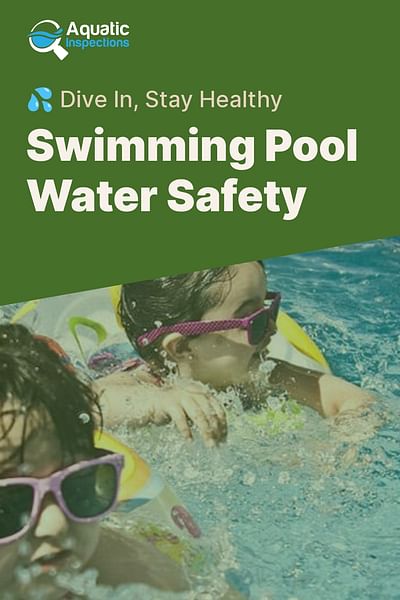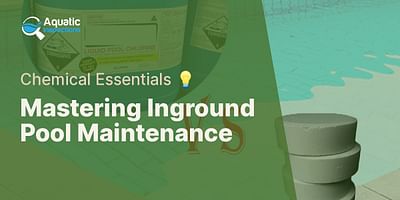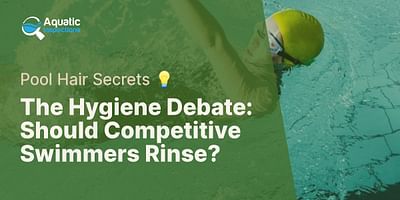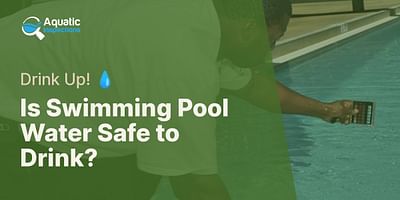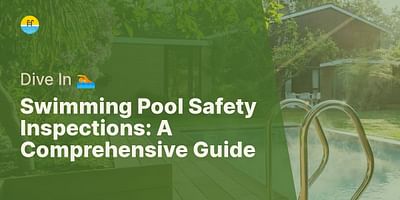Samantha Pooler is a seasoned pool installation expert with a decade of experience. She specializes in designing and installing custom pools for residential and commercial properties. Samantha is known for her creative designs and commitment to customer satisfaction.
I understand that many of us have accidentally swallowed pool water while swimming. It's a common occurrence, especially for children who are still learning to swim. But is it safe? Let's dive into the topic and explore the effects of swallowing pool water.
The Risks of Swallowing Pool Water
While pool water is treated with chemicals to maintain its cleanliness, it's important to remember that it's not meant for consumption. Swallowing small amounts of pool water is generally harmless, but ingesting large quantities can pose some risks.
Chlorine and Other Chemicals
One of the main concerns with swallowing pool water is the presence of chemicals, such as chlorine. Chlorine is used to disinfect the water and kill harmful bacteria and viruses. While it's essential for maintaining water quality, ingesting excessive amounts can lead to various health issues.
Swallowing pool water can cause irritation in the throat, stomach, and intestines. This can result in symptoms like nausea, vomiting, and diarrhea. In rare cases, it may even cause more severe reactions, especially in individuals with pre-existing respiratory conditions or allergies.
Bacteria and Contaminants
Another risk of swallowing pool water is the potential presence of bacteria and other contaminants. Despite regular maintenance and water testing, it's impossible to eliminate all microorganisms from the water. Swallowing contaminated pool water can lead to gastrointestinal illnesses, such as stomach cramps, fever, and diarrhea.
Preventing Water Ingestion
While it's challenging to completely avoid swallowing pool water, there are steps you can take to minimize the risk:
1. Practice Proper Hygiene: Encourage everyone to shower before entering the pool to reduce the introduction of contaminants.
2. Teach Proper Breathing Techniques: Help children learn to breathe properly while swimming to minimize the chances of inhaling water.
3. Use Swim Goggles and Nose Clips: Wearing goggles and nose clips can help prevent water from entering the eyes and nose, reducing the likelihood of swallowing it.
4. Supervise Young Children: Keep a close eye on young children while they're in the water to prevent them from accidentally ingesting pool water.
Conclusion
Ingesting small amounts of pool water is generally safe, but swallowing large quantities can have adverse effects. It's important to be mindful of the risks and take precautions to minimize water ingestion. Remember, maintaining proper pool hygiene, teaching proper breathing techniques, and using protective gear can help ensure a safer swimming experience for everyone.
If you have any further questions or concerns about pool water safety or maintenance, please feel free to explore our website, Aquatic Inspections, for more comprehensive guides and tips.



